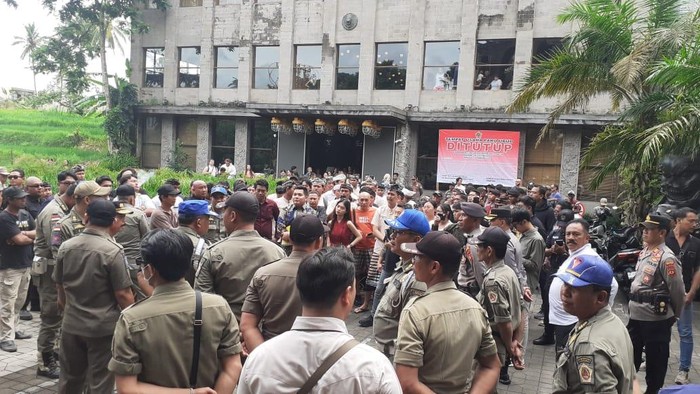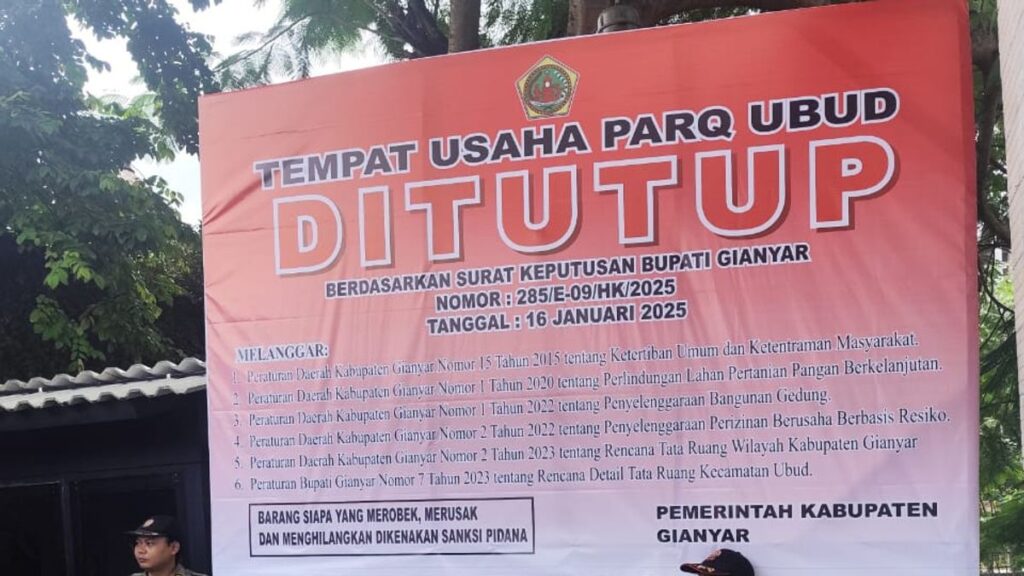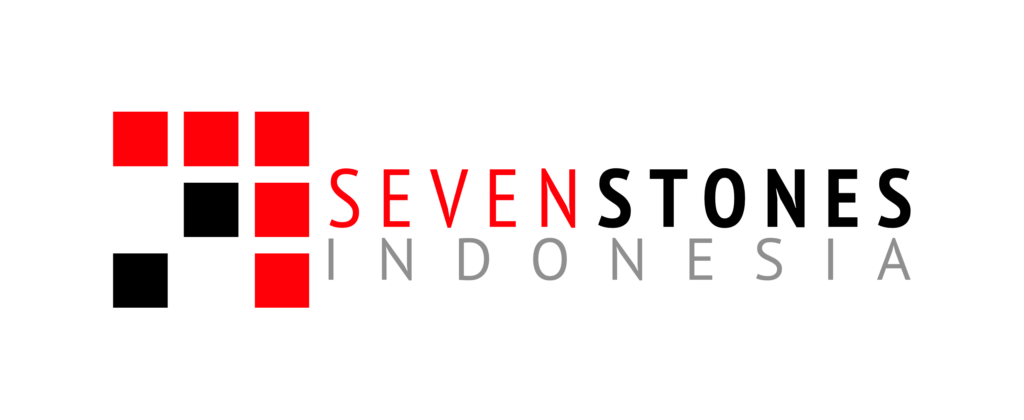
From vibrant hub to silent shell. Bali’s “Russian Village,” Parq Ubud, has been forced to close its doors following allegations of illegal land use.
In a move highlighting the seriousness of this situation, the Gianyar Local Government shut down the accommodation for the second time on January 20, 2025, and arrested its director on illegal land conversion charges. What’s the full story?
Illegal Conversion of Protected Land
After Parq Ubud closed, Bali police detained its director, a 53-year-old German with initial AF. Bali’s Police Chief, Inspector General Daniel Adityajaya, said the arrest was conducted after an investigation that started in November 2024.
AF is suspected of illegally converting 1.8 hectares of protected agricultural land into a commercial development.
According to Bali Police Chief Inspector General Daniel Adityajaya, AF held 34 land certificates from local residents to build Parq on land that was designated as a protected area for rice paddies, sustainable food agriculture, plantations, and tourism.
“The results of the investigation concluded that there were allegations of criminal acts of converting agricultural land and protected rice fields,” said Bali Police Chief, Friday, January 24, 2025.
The Police Chief also mentioned that because Parq was built without proper permits, the Gianyar Regency Government lost a lot of productive land.
Business Identification Numbers Revoked
Through his legal team, AF apologized to the people of Bali, especially those in Gianyar, for causing disruption and negative environmental impacts.
According to Agung Redi, AF’s lawyer, his client did not understand the regulations and permits required to operate a business in Indonesia.
He added that AF has provided a statement to the investigators of the Bali Police Special Crimes Directorate. During the investigation, AF stated that he had acted in good faith by making a cooperation contract with someone identified as IGNES regarding all necessary permits for activities at Parq Ubud.
This was supported by a statement from the Gianyar Public Works and Spatial Planning Department during a press release, which mentioned that a Business Identification Number had been issued for IGNES’s business permit application but has since been revoked by the ministry.
“With this apology, our client hopes that all the commotion caused by his ignorance can be resolved, and we are ready to continue the legal process,” said Agung Redi on Saturday, January 25, 2025, as reported by AntaraNews.

Key Compliance Areas
The case of AF and the Parq Ubud development underscores the importance for foreign investors to understand and comply with Indonesia’s complex regulatory framework. To help navigate this landscape, here are key compliance areas for foreign investors:
1. Foreign-owned company establishment
• PT PMA (Foreign-Owned Limited Liability Company): This is the most common business structure for foreign investors in Indonesia.
• Minimum Capital Requirements: There are minimum investment and paid-up capital requirements for PT PMA companies.
• Shareholder Requirements: A PT PMA must have at least two shareholders, which can be individuals or legal entities, whether local or foreigner.
2. Business Licensing and Permits
• Online Single Submission (OSS): Indonesia’s OSS system is the primary platform for obtaining business licenses. It categorizes businesses by risk level, determining the types of licenses required.
• Sector-Specific Licenses: Depending on the industry, additional licenses may be needed from relevant ministries or agencies.
3. Land, Building and Zoning Regulations
• Land Ownership: Foreigners generally cannot directly own land in Indonesia, but there are options like leasehold rights or right-to-build titles.
• Building Permits: Obtaining building permits and complying with construction regulations is crucial, especially for businesses like Parq Ubud that involve physical structures.
• Zoning Regulation : These regulations dictate land use, building restrictions, and environmental protection measures, ensuring that development aligns with local planning objectives. It’s crucial not to trust anyone, including public notaries or local officials or anyone, who offers to change restricted land zoning to make a purchase legal.
4. Tax Regulations
• Indonesia Tax ID (NPWP): Businesses must obtain an NPWP and comply with tax laws, including corporate income tax and value-added tax (VAT).
Doing Business with Confidence
The closure of Parq Ubud serves as a reminder of the potential pitfalls that foreign businesses can encounter when dealing with Indonesia’s regulatory landscape without comprehensive guidance.
The complex legal environment requires expert understanding and diligent compliance to avoid costly mistakes and legal complications.
At Seven Stones Indonesia, we specialize in ensuring that foreign investors like you can confidently establish and operate your businesses.
From company setup, business license application, zoning checking and building permits, to tax and accounting services, we offer comprehensive support for your business.
Get in touch with us today to learn more about our services. Text us via Whatsapp +62 877-7711-7701 or email us hello@sevenstonesindonesia.com.
Sources: AntaraNews, CNN Indonesia
Feat Image : via Gianyar Regency Government
